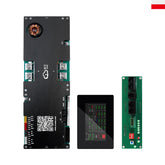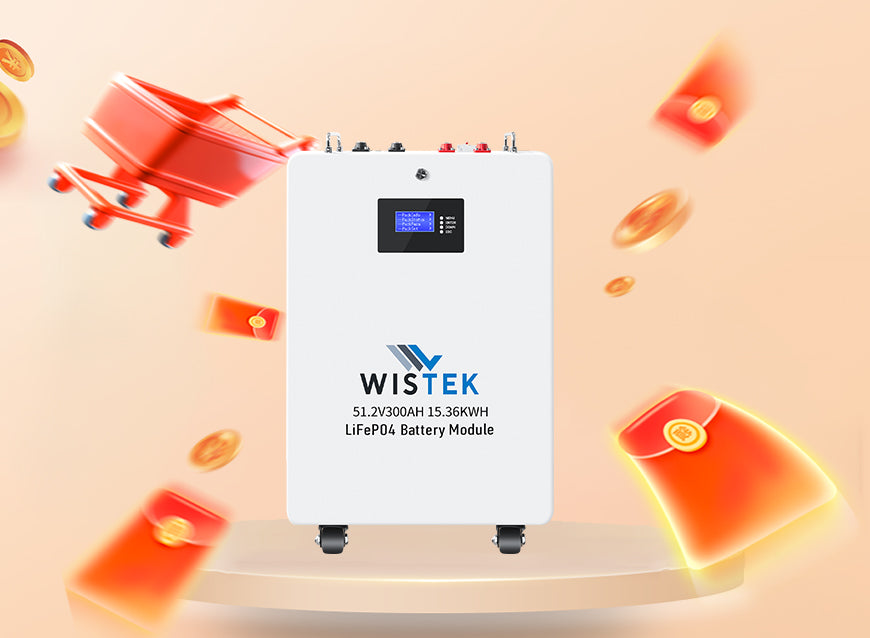Is It Worth Replacing Rechargeable Batteries in Solar Lights
When it comes to maintaining solar-powered lights, one of the most common issues homeowners face is the degradation of rechargeable batteries. Over time, these batteries lose their ability to hold a charge, which can result in dimming lights or even complete failure of the solar lights. The question arises: is replacing rechargeable batteries in solar lights a good idea? The answer, in short, is yes, and in this article, we will explore why replacing the rechargeable batteries in your solar lights can be a wise investment. We will also discuss the benefits, the process of replacing them, and how to select the right type of battery for your solar lights.
- Rechargeable Batteries and Solar Lights: The Connection
- How Do Rechargeable Batteries Affect Solar Light Performance?
- Benefits of Replacing Rechargeable Batteries in Solar Lights
- When Should You Replace Rechargeable Batteries in Solar Lights?
- How to Replace Rechargeable Batteries in Solar Lights
- Choosing the Right Rechargeable Batteries for Your Solar Lights
- Is Replacing Rechargeable Batteries in Solar Lights a Good Idea?
Rechargeable Batteries and Solar Lights: The Connection
Rechargeable batteries play a vital role in the performance of solar lights. Solar lights work by converting sunlight into energy during the day, which is then stored in rechargeable batteries. As night falls, the stored energy is used to power the light. Over time, however, rechargeable batteries can degrade due to constant charging and discharging cycles. This degradation results in a shorter runtime and reduced brightness, ultimately affecting the efficiency of your solar lights.
Why Do Solar Lights Need Rechargeable Batteries?
Solar lights rely on rechargeable batteries because they need a medium to store the solar energy they capture throughout the day. These batteries are designed to absorb energy from the solar panels and store it for later use when the sun goes down. Without the use of rechargeable batteries, solar lights would not be able to function after sunset. They are typically built to handle many charge-discharge cycles, but their capacity can decrease over time, leading to diminished performance.
The most commonly used rechargeable batteries in solar lights are Nickel-Metal Hydride (NiMH) and Lithium-Ion (Li-ion) batteries. These batteries are favored for their high energy capacity and ability to withstand numerous charge cycles. However, despite their design to last, they will eventually need replacing.
How Do Rechargeable Batteries Affect Solar Light Performance?
As mentioned, rechargeable batteries are essential for solar lights to function properly. But what happens when these batteries start to fail? The signs of a failing battery can include:
Reduced Brightness**: If the battery is not holding enough charge, your solar lights will shine much dimmer than usual.
Shorter Lighting Duration**: A weakened battery may only allow the lights to function for a few hours, instead of the typical 8–12 hours.
No Lighting at All: In some cases, a completely dead battery can prevent the lights from working altogether.
The Importance of Replacing Rechargeable Batteries in Solar Lights
Replacing rechargeable batteries in solar lights is essential for several reasons. First, it restores the efficiency of the solar lights, ensuring they continue to perform as intended. Second, replacing batteries can save you money in the long run. Rather than purchasing entirely new solar lights, you can simply replace the batteries, which is a more cost-effective solution. Finally, replacing the batteries helps extend the lifespan of your solar lights, ensuring they can continue to operate for many more years.
In the next sections, we will delve into the benefits of replacing rechargeable batteries in solar lights and provide a step-by-step guide on how to do so.
>>See also What Sets A Group 27 Marine Battery Apart From A Group 31 Marine Battery
Benefits of Replacing Rechargeable Batteries in Solar Lights
1. Restores the Functionality of Solar Lights
When rechargeable batteries in solar lights degrade, the lights may stop functioning altogether or operate at significantly reduced capacity. Replacing these batteries ensures that your solar lights continue to operate as efficiently as they did when they were new. If your solar lights have been dimming or turning off prematurely, new rechargeable batteries should restore their original brightness and runtime.
2. Cost-Effective Maintenance
Replacing rechargeable batteries in solar lights is far less expensive than buying new lights altogether. Solar lights, while generally affordable, can be expensive to replace, especially if you have several installed around your property. By simply replacing the rechargeable batteries, you can avoid the cost of replacing the entire light fixture. This is especially beneficial for those with high-end or decorative solar lights.
3. Eco-Friendly Solution
Solar lights are already an environmentally friendly option for lighting. By opting to replace the rechargeable batteries rather than discarding the entire unit, you are reducing waste. Many rechargeable batteries are designed to be disposed of properly, and replacing the batteries instead of throwing out the whole light fixture reduces your environmental impact.
4. Prolongs the Lifespan of Solar Lights
Just like any other technology, regular maintenance helps prolong the life of solar lights. Replacing rechargeable batteries ensures that your solar lights can continue to function properly, keeping your garden, driveway, or backyard lit for years to come. With proper care and timely battery replacements, your solar lights can last much longer than if you neglect the batteries.
When Should You Replace Rechargeable Batteries in Solar Lights?
Knowing when to replace rechargeable batteries in solar lights is crucial. Some signs that indicate it’s time to replace the batteries include:
Dim Lights: If the lights are no longer as bright as they used to be, it could be a sign that the rechargeable battery is no longer holding a charge properly.
Shorter Run Time: If your lights turn off too early in the evening or don’t stay on all night, this could be a sign that the battery needs to be replaced.
No Lighting at All: If your solar lights are completely dark, even when the solar panel is exposed to sunlight during the day, the battery is most likely dead and needs to be replaced.
If your solar lights are exhibiting any of these issues, it may be time to replace the rechargeable batteries. By addressing the problem early, you can restore your solar lights to their full potential before the batteries fail completely.
How to Replace Rechargeable Batteries in Solar Lights
Replacing rechargeable batteries in solar lights is a simple process that requires minimal tools. Here’s a step-by-step guide:
1. Gather the Necessary Tools and Materials
To replace the rechargeable batteries in your solar lights, you will need:
- A screwdriver (usually a small Phillips or flat-head screwdriver)
- Replacement rechargeable batteries (NiMH or Li-ion, depending on your solar lights)
- A pair of gloves (optional, for safety)
2. Remove the Solar Light from Its Fixture
Before replacing the batteries, you’ll need to remove the solar light from its fixture. Depending on your light, this may involve unscrewing the light from a stake or base or simply lifting it off the mount. Some lights may have an easily detachable top, while others may require you to disassemble the fixture.
3. Open the Battery Compartment
Most solar lights have a small battery compartment located at the base of the light. Use the screwdriver to remove any screws securing the battery compartment cover. Once the cover is removed, you’ll have access to the rechargeable batteries inside.
4. Remove the Old Batteries
Carefully remove the old rechargeable batteries from the compartment. Take note of how the batteries are positioned, as you will need to place the new batteries in the same orientation. If the old batteries are corroded or damaged, wear gloves and handle them carefully to avoid injury.
5. Insert the New Rechargeable Batteries
Place the new rechargeable batteries into the battery compartment, making sure they are correctly aligned with the terminals. Ensure that the batteries are seated firmly and are in the correct orientation. This step is important to ensure proper contact with the terminals and efficient charging.
6. Close the Battery Compartment
Once the new batteries are in place, replace the battery compartment cover and secure it with screws if necessary.
7. Test the Solar Light
After replacing the rechargeable batteries, test the solar light by placing it back in its original location. Allow the solar panel to charge the new batteries during the day, and check the light at night to ensure it’s functioning properly.
Choosing the Right Rechargeable Batteries for Your Solar Lights
When replacing the rechargeable batteries in your solar lights, it’s essential to choose the right type of battery. The most common types of rechargeable batteries used in solar lights are:
Nickel-Metal Hydride (NiMH) Batteries
NiMH batteries are the most commonly used in solar lights due to their affordability and environmental benefits. They have a moderate capacity and can handle many charge-discharge cycles. When selecting NiMH batteries, look for those with a capacity of around 600mAh to 1000mAh for optimal performance in most solar lights.
Lithium-Ion (Li-ion) Batteries
Lithium-ion batteries are newer and more expensive but have a higher energy capacity and longer lifespan than NiMH batteries. They are often used in higher-end solar lights. If your solar lights are designed to work with Li-ion batteries, they can be an excellent option for longer-lasting performance.
Size and Voltage
Make sure to check the size (usually AA or AAA) and voltage (1.2V for NiMH, 3.7V for Li-ion) of the batteries in your solar lights before purchasing replacements. Using the wrong size or voltage can result in poor performance or even damage to the light fixture.
>>See also How to Select the Right Power Supply for Your Standalone Fish Finder
Is Replacing Rechargeable Batteries in Solar Lights a Good Idea?
Replacing rechargeable batteries in solar lights is not only a good idea but often a necessary one to maintain the performance of your lights. By replacing old, worn-out batteries with new ones, you can restore the brightness, extend the runtime, and prolong the lifespan of your solar lights. This simple and cost-effective maintenance task ensures your solar lights continue to shine bright, helping to create a welcoming atmosphere around your home.
Whether you have decorative solar lights or functional security lights, replacing the rechargeable batteries will enhance their efficiency and keep them running smoothly for years to come. So, if you notice signs of battery degradation, such as dim lights or shorter run times, consider replacing the rechargeable batteries in your solar lights and enjoy their bright, eco-friendly performance for years to come.

























Leave a comment
All blog comments are checked prior to publishing